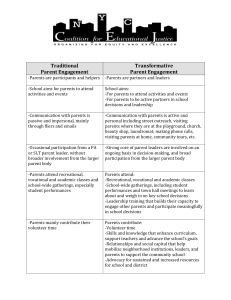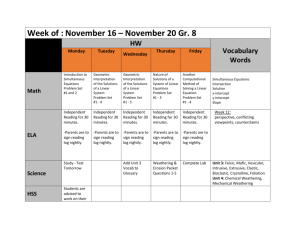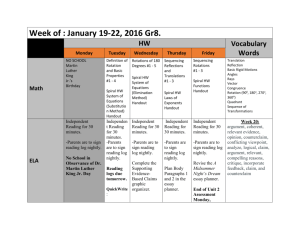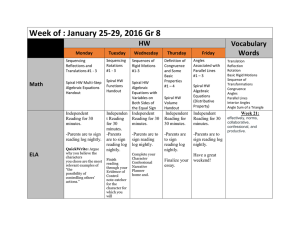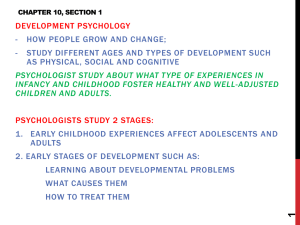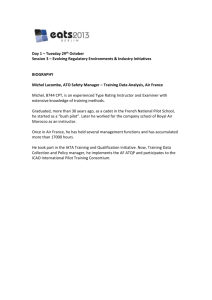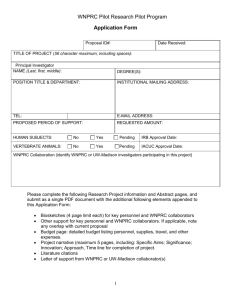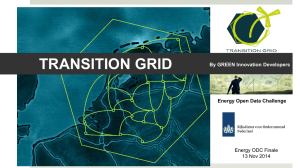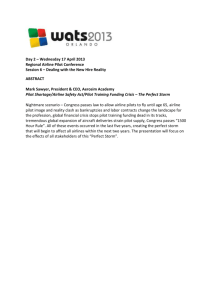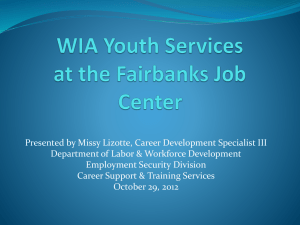PARENTS as family vocational adviser for children
advertisement
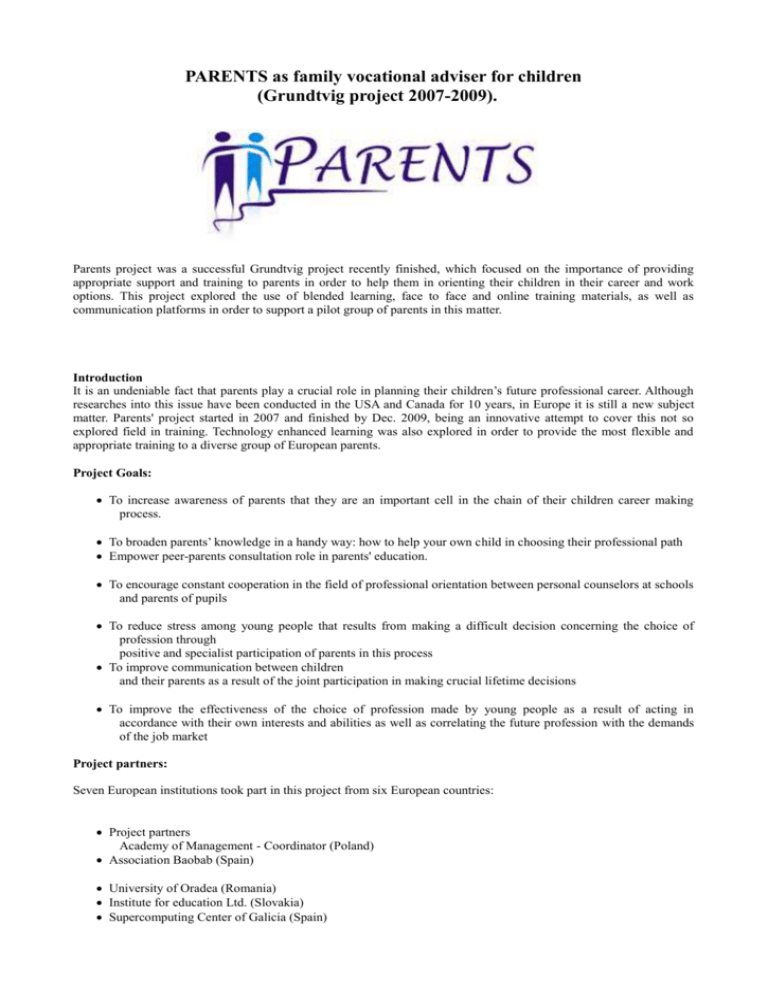
PARENTS as family vocational adviser for children (Grundtvig project 2007-2009). Parents project was a successful Grundtvig project recently finished, which focused on the importance of providing appropriate support and training to parents in order to help them in orienting their children in their career and work options. This project explored the use of blended learning, face to face and online training materials, as well as communication platforms in order to support a pilot group of parents in this matter. Introduction It is an undeniable fact that parents play a crucial role in planning their children’s future professional career. Although researches into this issue have been conducted in the USA and Canada for 10 years, in Europe it is still a new subject matter. Parents' project started in 2007 and finished by Dec. 2009, being an innovative attempt to cover this not so explored field in training. Technology enhanced learning was also explored in order to provide the most flexible and appropriate training to a diverse group of European parents. Project Goals: To increase awareness of parents that they are an important cell in the chain of their children career making process. To broaden parents’ knowledge in a handy way: how to help your own child in choosing their professional path Empower peer-parents consultation role in parents' education. To encourage constant cooperation in the field of professional orientation between personal counselors at schools and parents of pupils To reduce stress among young people that results from making a difficult decision concerning the choice of profession through positive and specialist participation of parents in this process To improve communication between children and their parents as a result of the joint participation in making crucial lifetime decisions To improve the effectiveness of the choice of profession made by young people as a result of acting in accordance with their own interests and abilities as well as correlating the future profession with the demands of the job market Project partners: Seven European institutions took part in this project from six European countries: Project partners Academy of Management - Coordinator (Poland) Association Baobab (Spain) University of Oradea (Romania) Institute for education Ltd. (Slovakia) Supercomputing Center of Galicia (Spain) Die Berater (Austria) Training 2000 (Italy) Pilot courses and users: Before we started 6 pilot experiences on training for parents in each country, each partner carried out a survey with his focus group. This was later on summarized in a survey which pointed out their opinions on: -Parents' will in helping children vocational choices. -Parents' experience in cooperation with career counselors -Parents' opinion on their children expectations while choosing a career -Parents' expectations on counselor’s assistance. -Parents' opinion on responsibilities/ roles between child, parents, counselors, or other institutions. -Parents' perception on skills needed to develop the career planning of their children -Parents' opinion on the form and content of the planned project “products” (training, e-learning web site) -Parents' commitment, in terms of learning time, in order to provide their children better assistance -Parents' preferences regarding training support: face to face courses, virtual platform for peer groups, or e-learning material. Training was envisaged to provide new handy skills for parents. Theoretical knowledge was limited to cover the basics. Practical skills are expected to be acquired during interactive face to face workshops (role playing, psychological exercises, dramas etc.). Theoretical knowledge was provided to the participants as auxiliary materials available through the project's virtual environment. Training sessions consists of the following issues: - How to get to know your own child: his/her talents; his/her interests; his/her hierarchy of values, his/her personality. - How to help a child in making occupational decisions through education: setting aims in a proper way; constructing plans and their realization; coping with objectively and subjectively difficult situations. - How to make use of the determinants of family environment and its occupational genetic diagram when planning the career of a child - How to establish contact with the child and facilitate mutual communication in the key moments in the course of making occupational decisions by him/her. Pilot courses In each of the six participant countries a pilot course for 10 parents was organized. The content of the courses was first developed in English, and then, translated to all the languages of the consortium. Each pilot course consisted of 30 hours, following a blended-learning methodology. 10 hours were devoted to face to face training and 20 hours online training. To provide the online training part, the e-learning area of the Supercomputing Center of Galicia analyzed parents' choices and likes and designed and implemented a virtual environment for both trainers and parents. Platform for trainers and parents The virtual environment was based on an Open Source Content Management Software named Joomla, which initially complied with the main needs identified, and it was adapted to comply with the training and information needs of the project. At the beginning, it was stated that the main environment should not be a standard learning management system, but a more flexible environment, that would mainly serve to host personalized information for parents, as well as communication tools and some sort of self-learning materials. The environment should also serve as a public website for other parents who might be interested in the project results and future participation, as well as a private environment that would require personalized access for those parents who participated in the pilots. Being a multilingual project, it should also take this into account and provide the seven languages used in the project. The tools included in the platform made sure that communication, information and training needs of participant parents were fulfilled. Therefore, Parent's platform had: agenda (for training sessions and other events) forums (per language and a common one) self study exercises Case studies where parents could self evaluate online activities Recommended readings FAQ Search tool Summary Vocational guidance and vocational counselling are able to make full use of the advantages of the Information and Communication Technologies. So professionals of this field together with parents and children can be clearly benefited from its use. The project report showed that both groups are ready to make use of ICT as a complement for face to face lessons, and are willing to take advantage of its flexibility and possibilities. References [2] Parents Project Official Website: http://www.parents-project.eu/ Access [3] date 06/11/2009. Parents Project Virtual Environment: http://parents.cesga.es/ . Access date 06/11/2009.
